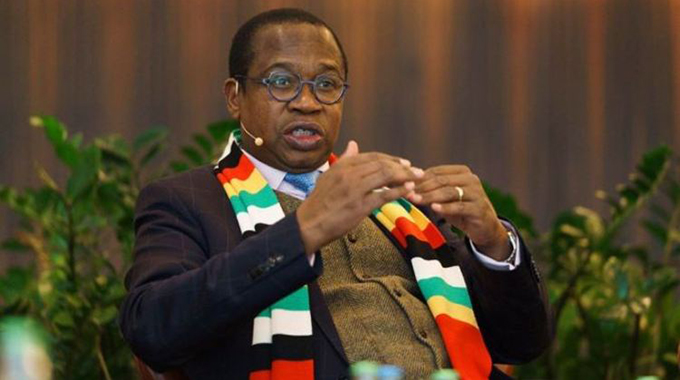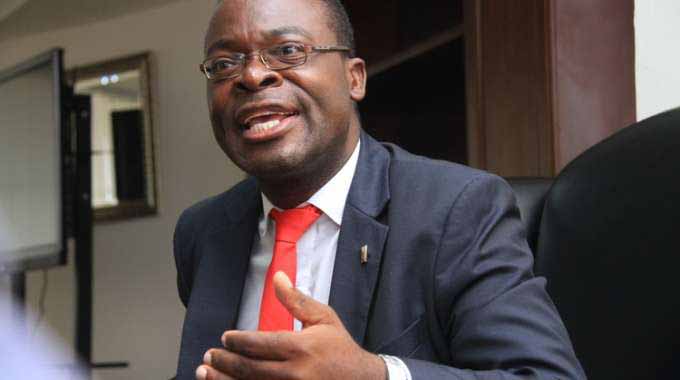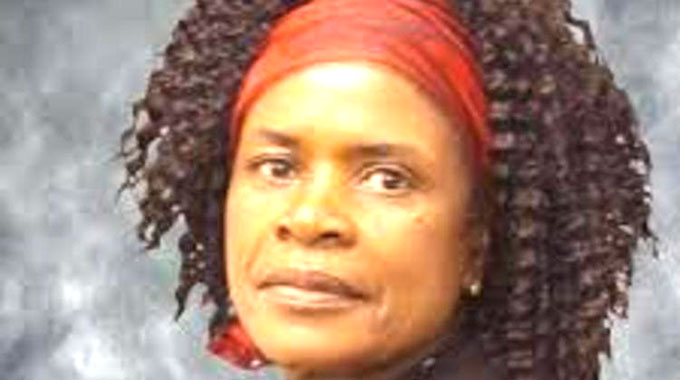Provinces receive devolution funds

Herald Reporters
GOVERNMENT’S devolution agenda has taken off in earnest, as provinces begin to utilise development funds under the $310 million facility set aside by Treasury, with Finance and Economic Development Minister Professor Mthuli Ncube saying the amount will be increased in the next cycle.
Government allocated the funds to be shared among the 10 provinces based on a number of factors such as poverty levels in all rural districts, quality of infrastructure and size of population.
The Herald’s bureaus report that most provinces have started using the funds for construction of schools, clinics and roads, among other projects aimed at facilitating development.
Addressing the third Rural District Council Chairpersons’ Indaba in Victoria Falls recently, Prof Ncube said Treasury was considering increasing the amount being allocated, but would not do so until provinces and local authorities utilised what was allocated to them last year.
He said he had a poverty map for the country and was aware of all projects taking place under devolution.
“As RDCs you look after 70 percent of the population and 90 percent of the projects are located in rural areas, so you are the implementers of this project,” said Prof Ncube. “In fact, I am thinking of increasing the money, I have got a figure but I can’t tell you. I have to tell the President first.”
Prof Ncube said of the total amount, 25 percent will support provincial structures, with 75 percent going to rural councils.
Rural district and urban councils in the Midlands have all received their share from the $41,6 million allocated to the province for socio-economic development.
Minister of State for Midlands Provincial Affairs Larry Mavima said the province, which boasts a variety of minerals and vast agricultural potential, was poised to take a leading role in the country’s economic revival and President Mnangagwa’s vision of turning Zimbabwe into a middle-income economy by the year 2030.
He said under the devolution agenda, the province was targeting a $15 billion GDP by the year 2030.
Minister Mavima said devolution-centred projects had started in all the rural and urban councils which received funding from Government, adding that projects such as infrastructure development were topping the list from the local authorities.
Local authorities that have received the devolution funds are Chirumhanzu RDC which got about $1,6 million, Gokwe North ($1,4 million), Gokwe South ($2,3 million), Zibagwe ($2,1 million), Mberengwa ($1,3 million), Tongogara ($2,4 million), Runde ($2,8 million), Gweru, ($3,4 million), Kwekwe ($4 million), Redcliff ($4,8 million), Zvishavane ($4,8 million), Gokwe Town ($4,7 million) and Shurugwi ($4,8 million).
Minister Mavima said the funds released to the urban and rural local authorities were for development and an indication of the commitment by Government to see the success of devolution.
“When we talk of devolution, local authorities have a major role to play, and I am glad to note that all have received a chunk from the total allocated to the province and development works have started,” he said.
“From Mberengwa to Gokwe projects like water and sanitation, drilling of boreholes, construction of clinics, classroom blocks and rehabilitation of roads are taking shape.
“The money differed from local authority to local authority as Government looked at the population and needs of the local authority.”
Devolution projects worth $5,6 million have kicked off in Masvingo province, mainly the construction of schools, clinics and roads in various districts in the province.
Masvingo Provincial Development Coordinator Mr Fungai Mbetsa said the province was already utilising the first tranche disbursed to the province to undertake devolution projects.
Mr Mbetsa said they were prioritising development, especially in rural areas, under the devolution programme.
“As a province, we received the first tranche of around $5,6 million and we have been given a tentative allocation of the second tranche and we are still waiting for the release,” he said. “We have earmarked the development of clinics and schools.
“There has been some local authorities that have earmarked on road infrastructure development such as Zaka and Mwenezi. Most of these projects have been kicked off, like in Chivi, a big clinic is already under construction and here in Masvingo City several clinics are already under construction.
“Classrooms blocks, partly in Mwenezi, Gutu and Bikita are also under construction.”
Matabeleland North was allocated $31 million and $25 million has been disbursed.
Matabeleland North Provincial Minister Richard Moyo confirmed that local RDCs had received the money, but had not withdrawn it because provincial council members have not been sworn in and operational guidelines yet to be spelt out.
“The province got $31 million and $25 million is what has been transferred so far,” he said. “The local authorities are not using the money because provincial council members haven’t been sworn in, but we hope that since workshops have started then something will happen.”
Minister Moyo said the province targeted mostly roads, water, clinics and schools projects.
“The state of our road network is very poor,” he said. “We also have a challenge with clinics and schools where people walk long distances to the nearest service centre and these are the projects we want to prioritise,” he said.
Matabeleland South Minister of State for Provincial Affairs Abednico Ncube said the province had so far received $2,7 million to roll out economic development initiatives in all the seven administrative districts.
He said the money would be spent on a number of community empowerment and economic development initiatives.
Minister Ncube said they had since held a devolution conference with different players to set the stage for implementing the concept.
“Multiple quick win projects have been rolled all over the province and the construction of new clinics has already yielded results through local authorities,” said Minister Ncube.
“Recently, the opening of Fumugwe Rural Health Centre has shown that forging partnerships between local authorities, communities, development partners and the Diaspora communities can yield results.
“Matobo District is currently working on five more clinics using the same strategy. Investors in the Diaspora, that is our people from outside our borders, have embraced the devolution concept and are willing to be a part of the development of their own areas.”
Manicaland Province received the highest allocation of $43 million from the fiscus for devolution under which resources will be distributed to provincial and local tiers.
Fern Hill Township, which falls under the Mutare City Council, was declared a Special Economic Zone in September 2018 and will anchor the province’s devolution agenda.
According to City of Mutare, Fern Hill will be modelled around a gemmology centre to be constructed by the Zimbabwe School of Mines and its partners for the cutting and polishing of diamonds.
Other facilities include five-star hotels and lodges for accommodation and conference facilities.
Under the Urban Renewal Project, Sakubva suburb is expected to be remodelled to provide modern and decent accommodation to residents at the tune of $9,24 million.
All the 10 local authorities in Mashonaland Central are embarking on projects that were funded by central Government as part of the devolution process.
In an interview, acting provincial development co-ordinator Mr Cosmas Chiringa said: “Yes, we received money from the Ministry of Finance and Economic Development as part of the devolution process.
“Unfortunately, I don’t have the figures off hand, but we informed all the local authorities to embark on projects that have a positive impact on people’s lives. We want projects that have an impact on the respective communities.”









Comments